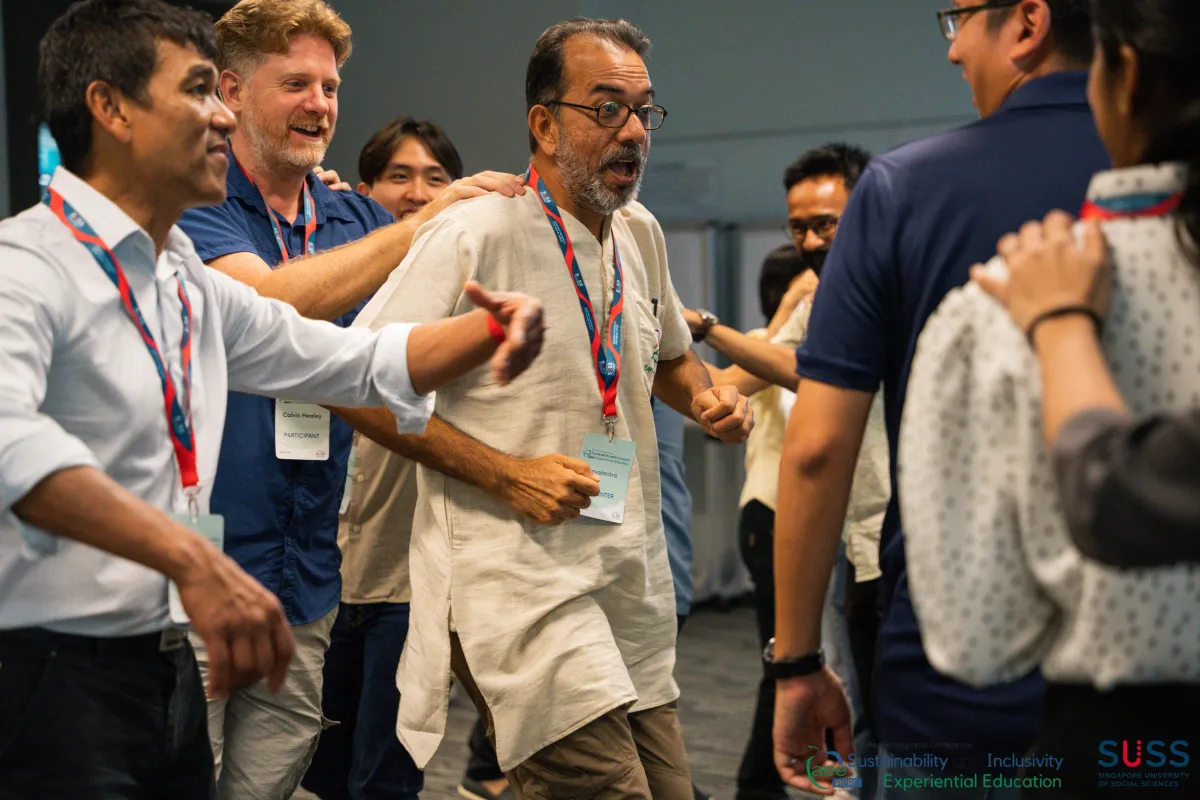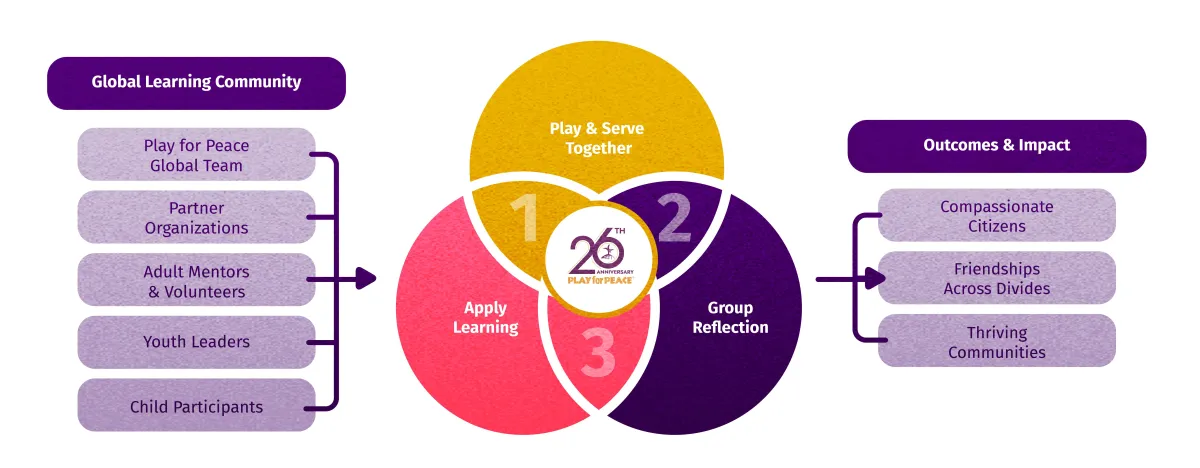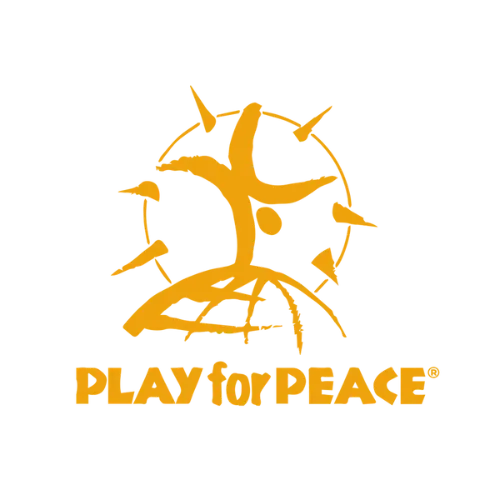Impact Of Our Work
Play for Peace is a group of people united by a dream of peace for our children—today and tomorrow—and guided by our mission and core values. Each of our communities creates the interventions most relevant to their needs and connects with the global learning community for learning, inspiration, and support. Quite simply, where Play for Peace exists, peace itself grows.
When everyone is invited, everybody wins!

Our Method
Play is a universal way for people to come together and learn. It creates a gateway to moments when differences are celebrated, friendships are created, and we see what connects us rather than what divides us. We use play as an experiential learning tool and a catalyst for inspiring people from different cultures to reach across barriers and boundaries. When ready, groups move "beyond play" and begin to include community service learning, effectively solving community issues together.


Our Model
Play for Peace is more than a program or handbook of activities. It is a community that has been transformed by actions inspired by our methodology and sustained by local leadership, empowered youth, and regional organizations. Guided by our mission and core values of cooperation, inclusion, caring, and fun, community members do more than participate in the Play for Peace process; the process becomes a part of them.


Our Outcomes
At Play for Peace, our impact speaks volumes. Through cooperative play, we’ve transformed communities, empowered youth, and built lasting bridges across divides. Explore our outcomes to see how laughter, compassion, and connection create measurable change worldwide.

Want To Connect With Us?
We’d love to hear from you and explore how we can make a difference together.
Designed with love by Francisco Hueyatl León. Copyright 2026. Play for Peace. All Rights Reserved. EIN 36-4254565
